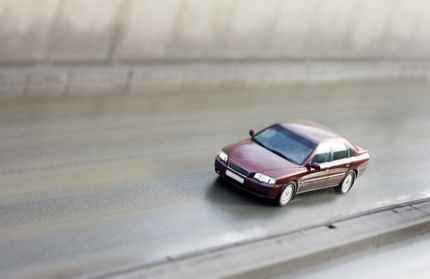
In modern cars, braking is accomplished through the use of a closed hydraulic system. It's a reliable and efficient. Total brake failure is rare, but there are factors that contribute to driving situations that could become dangerous quickly. It's a good idea to be familiar with the symptoms and causes of brake failure and know how to react properly.
A car's braking system relies on a special hydraulic fluid with specific properties that make it suited for use in the braking system. Periodically the driver should check the reservoir on top of the master cylinder for proper brake fluid level. Normal use will cause the level to drop through time. If you notice the level dropping precipitously over the course of a few days or if it descends to two-thirds full, it's time to add fluid. Low brake fluid can cause your car's brakes to feel spongy or require repeated pumping of the foot pedal to stop the car. This is a serious problem. You need to fill the reservoir back up or risk acquiring a nonfunctional brake pedal.
The friction generated by repeated, heavy use of the brake pedal could actually cause the brake pads to overheat and work poorly, if at all. It's not a permanent situation. Once they cool down, they'll work fine again. If you suspect the pads are getting hot, it's a good idea to pull over immediately and give them a chance to recover. Brake pads also wear down through time and need replacement.
Failure in any of the physical parts that make up the braking system could cause your brakes to stop working. Besides the brake pads, there are also rotors, calipers, drums (on some cars) and brake lines that can suddenly fail. If you notice anything strange about the way your car stops, such as squealing, grinding, pulling to one side or the other, or the pedal going to the floor, have it checked out by a professional.